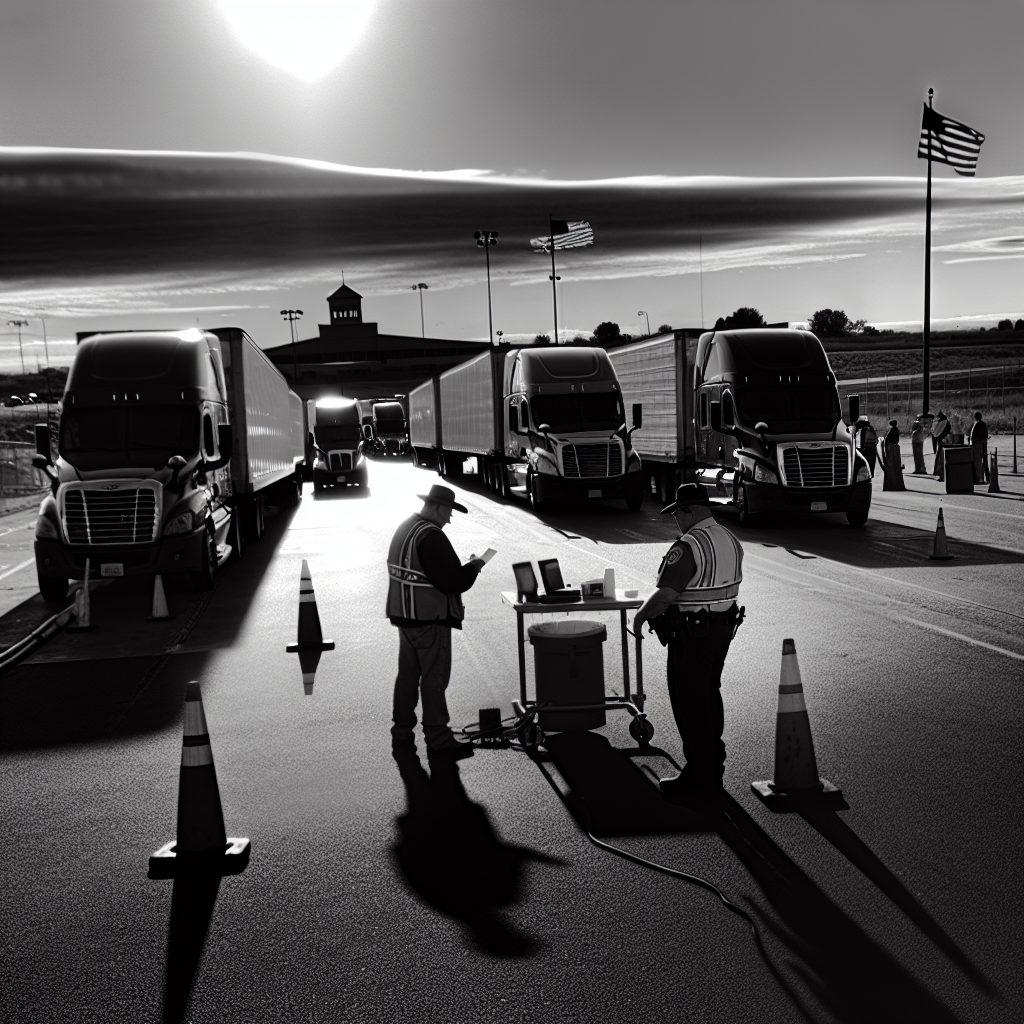A new House proposal targeting commercial drivers who lack lawful U.S. status arrives just as state motor-vehicle agencies are slamming the brakes on non‑domiciled commercial licenses under an emergency federal rule. The timing matters for carriers: Washington, California and Oregon have begun shutting off issuance and renewals for certain foreign‑national applicants, shrinking an already tight labor pipeline while compliance rules are rewritten.
Washington’s Department of Licensing now says it has stopped processing every non‑domiciled commercial learner’s permit and CDL transaction—originals, renewals, upgrades, duplicates and replacements—and has suspended related knowledge and skills tests for those applicants until further notice. That’s an immediate operational hit for fleets onboarding drivers who hold temporary immigration credentials.
California’s DMV has posted similar guidance, stating that, effective September 29, it cannot issue or renew limited‑term legal‑presence (non‑domiciled) CDLs or CLPs until new federal standards are met. The agency directs eligible drivers toward in‑person transactions for domiciled credentials, but the non‑domiciled pipeline is paused. For multistate carriers that recruit in California, that means testing schedules, road skills appointments and start dates will shuffle.
Oregon’s DMV has also halted limited‑term (non‑domiciled) CDLs and CLPs and, crucially, quantified the local exposure: roughly 1,400 affected credential holders statewide. Oregon says coming into full compliance may require statutory and administrative rule changes as well as “extensive computer system changes,” signaling the pause could last beyond the six‑month validity window for recent test results. That introduces churn for third‑party testers, schools and fleets that planned to seat candidates this quarter.
What changed in the background: an emergency action by the U.S. Department of Transportation and FMCSA tightened who may obtain a non‑domiciled CDL and directed states to pause issuance until they can meet the updated verification and oversight requirements. The rule took effect immediately and is already cascading through state DMVs. For carriers, the near‑term impact is fewer eligible new entrants from certain visa and work‑authorization categories and more verification friction at renewal.
Against that backdrop, House Republicans have introduced legislation aimed at hard‑coding these restrictions and adding enforcement teeth: sponsors want to ensure CDLs are limited to drivers with lawful status and to penalize states that don’t adhere to federal verification and reporting standards. For trucking audiences, the signal is clear: what began as an emergency rule is now being teed up for statute, raising the stakes for state compliance and shrinking flexibility for edge‑case licensing scenarios highlighted by recent audits and high‑profile crashes.
Why this matters on the ground:
– Driver supply and onboarding. With multiple states suspending non‑domiciled CDL activity, carriers that lean on foreign‑national recruiting channels will see hiring delays and higher fall‑through. Expect longer time‑to‑seat and elevated training idle time as applicants wait on status changes or switch to non‑commercial roles.
– Compliance exposure. The state pauses mean more downgrade notices, more manual checks of work‑authorization dates, and added risk that a driver’s credentials lapse between dispatches. Carriers should tighten I‑9/SAVE verification workflows, document rechecks at pre‑dispatch, and proactively map renewal dates against route plans.
– Network planning. Regional fleets operating in the West—particularly those relying on California testing slots or Oregon third‑party examiners—should build contingencies: cross‑train relief drivers, shift freight to domiciled‑credentialed crews, and renegotiate SLAs with shippers where capacity could wobble in October–November.
What to watch next: state timelines. Washington has not given a restart date; California points to federal compliance as the gating factor; Oregon openly warns that legal and IT changes may be required before issuances resume. For fleets, the practical marker is when DMVs begin accepting non‑domiciled testing and applications again—and whether Congress locks the emergency standards into law, removing any room for state‑level flexibility.
Sources: FreightWaves, California DMV, Washington State Department of Licensing, Oregon DMV, FCCR
This article was prepared exclusively for TruckStopInsider.com. Republishing is permitted only with proper credit and a link back to the original source.





